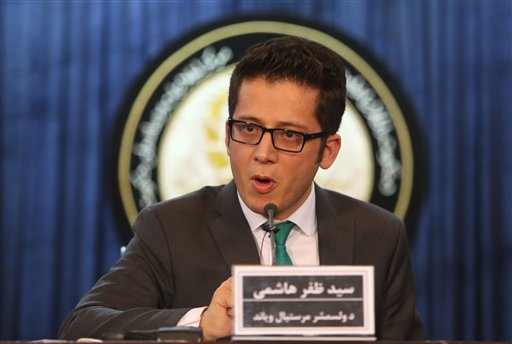
Zafar Hashemi, a deputy spokesman for Afghan President Ashraf Ghani, speaks during a press conference in Kabul, Afghanistan, Wednesday, July 29, 2015. An Afghan official said Wednesday his government is examining claims that reclusive Taliban leader Mullah Omar is dead. AP
KABUL, Afghanistan — Afghanistan’s main intelligence agency said Wednesday that the reclusive Taliban leader Mullah Mohammad Omar has been dead for more than two years.
The one-eyed, secretive head of the Taliban and an al-Qaida ally led a bloody insurgency against U.S.-led forces after they toppled him from his rule in Afghanistan in 2001. He has not been seen in public since fleeing the invasion over the border into Pakistan.
Abdul Hassib Seddiqi, the spokesman for Afghanistan’s National Directorate of Security, said Mullah Omar died in a hospital in the Pakistani city of Karachi in April 2013.
“We confirm officially that he is dead,” he told The Associated Press.
It was not immediately clear why his death was only being announced now. The confirmation comes two days before the Afghan government and the Taliban are to hold their second round of official peace talks in Pakistan. The Taliban could not be immediately reached for comment.
“He was very sick in a Karachi hospital and died suspiciously there,” Seddiqi said, without elaborating.
Earlier, Zafar Hashemi, the deputy spokesman for Afghan President Ashraf Ghani, said the government was investigating reports that the Taliban leader was dead.
Representatives of the Afghan government and the Taliban are due to meet on Friday in Pakistan for official talks aimed at ending the war that is nearing its 14th year.
Confirmation of Mullah Omar’s death could complicate the peace process as it removes a figurehead for the insurgents, who until now have appeared to act collectively but are believed to be split on whether to continue the war or negotiate with Ghani’s government.
Ending the war has been a main priority for Ghani since he took office last year.